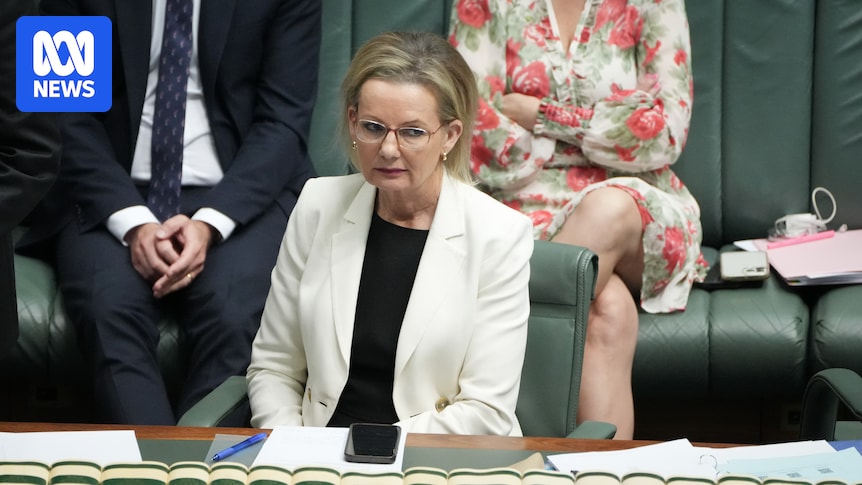
Welcome back to your weekly federal politics update, where Courtney Gould provides insights into the latest happenings from Parliament House. As the Albanese government grapples with transparency issues, the Coalition has found itself embroiled in a debate over Prime Minister Anthony Albanese’s choice of attire—a Joy Division T-shirt.
The controversy began when Sussan Ley, attempting to leave a business leaders summit, was intercepted by an adviser who tried to prevent further comments on the prime minister’s T-shirt. The shirt, displaying the post-punk band’s “Unknown Pleasures” album cover, sparked criticism due to its historical connotations. Ley demanded an apology from Albanese, citing the band’s name, Joy Division, which refers to a term used for women kept as sexual slaves in World War II concentration camps.
Despite the uproar, Ley’s comments were not universally supported within her party. Her Nationals colleagues, Bridget McKenzie and Matt Canavan, showed little concern over the prime minister’s clothing choice. This internal division highlights a broader issue within the Coalition, as they struggle to maintain a unified front on various topics, including net-zero emissions.
Transparency Under Scrutiny
While the Coalition fixated on the T-shirt saga, the Albanese government faced significant criticism over transparency. The Centre for Public Integrity recently failed the government on six out of seven fields, raising concerns about freedom of information laws, “jobs for mates,” and parliamentary accountability. This has been a longstanding issue, with frustration simmering within the Coalition over Labor’s handling of Senate information requests and staff cuts.
David Pocock, seizing the opportunity, suggested extending Senate Question Time until a key report on “jobs for mates” is released. This move was seen as a challenge to the government to increase transparency. However, the government’s response was swift and strategic, threatening to strip deputy chair committee positions from Coalition MPs and running down the clock on private senator’s business.
“It is extraordinary that the moment I start talking about transparency that games start being played,” remarked a frustrated Jane Hume.
Albanese’s International Diplomacy
Amid these domestic challenges, Prime Minister Albanese embarked on an international tour, attending ASEAN and APEC meetings. His itinerary included meetings with leaders from Japan, Malaysia, the Philippines, Cambodia, and China’s Premier Li Qiang. Notably, Albanese opted to skip the final day of the ASEAN summit for a dinner with US President Donald Trump and other leaders, highlighting the strategic importance of international relations.
The dinner, held in South Korea, featured leaders from New Zealand, Canada, Vietnam, Thailand, and Singapore. Albanese received praise for his role in striking a critical mineral and rare earth deal, a significant achievement in the context of global resource competition.
Albanese was commended for the “fantastic” job he’d done in securing the deal, showcasing his diplomatic acumen.
Political Implications and Future Challenges
As Albanese returns home, he faces a Senate poised for confrontation. The ongoing transparency issues and internal Coalition divisions present significant challenges for the government. The T-shirt controversy, while seemingly trivial, underscores deeper political rifts and the need for strategic focus on more pressing matters.
Looking ahead, the Albanese government must navigate these domestic and international challenges, balancing transparency demands with diplomatic engagements. The Coalition, meanwhile, must address its internal divisions to effectively hold the government accountable and present a cohesive opposition.
With the political landscape increasingly complex, the coming weeks will be pivotal in shaping the trajectory of Australian federal politics.






